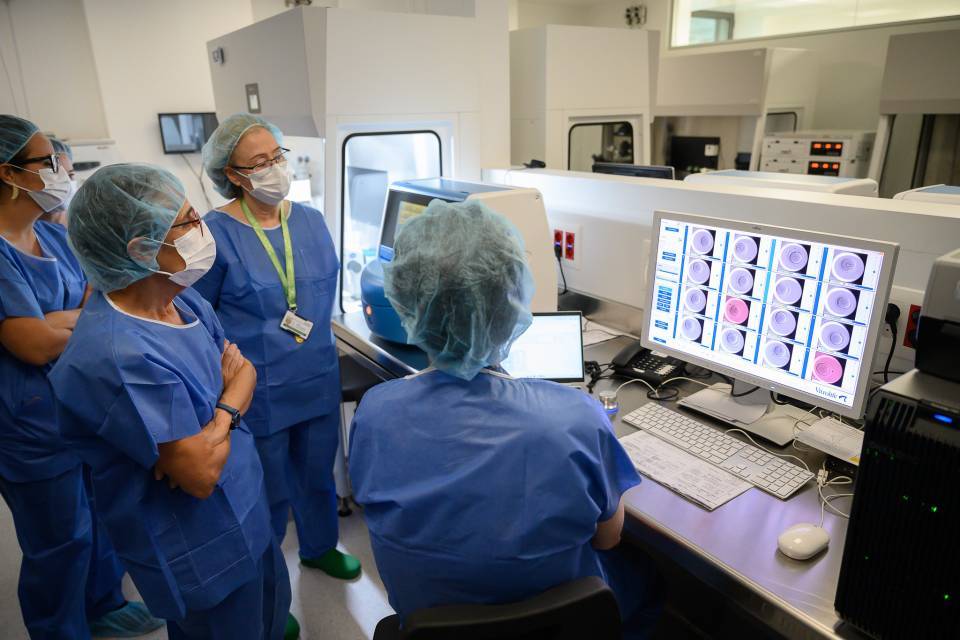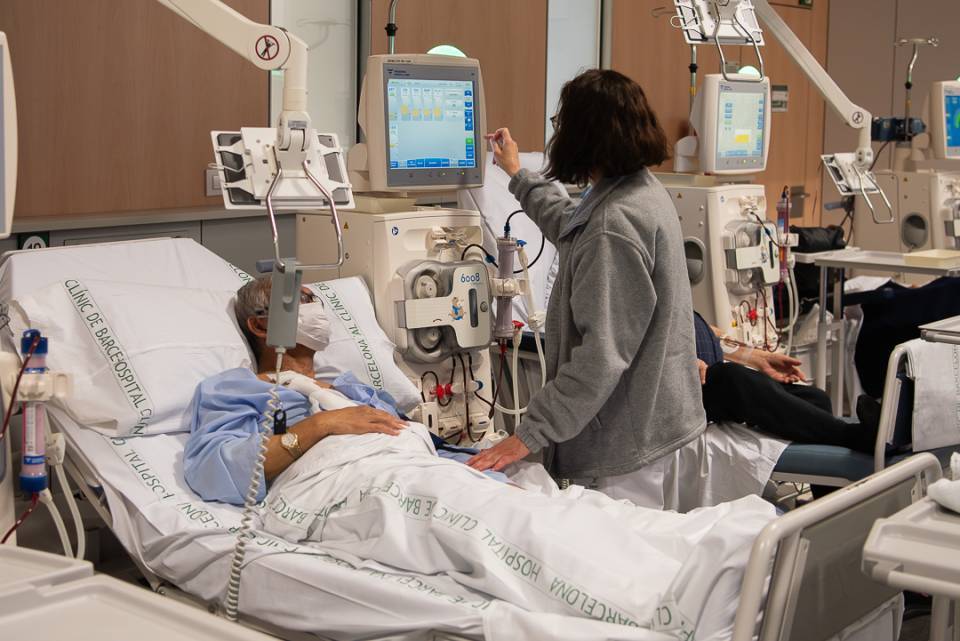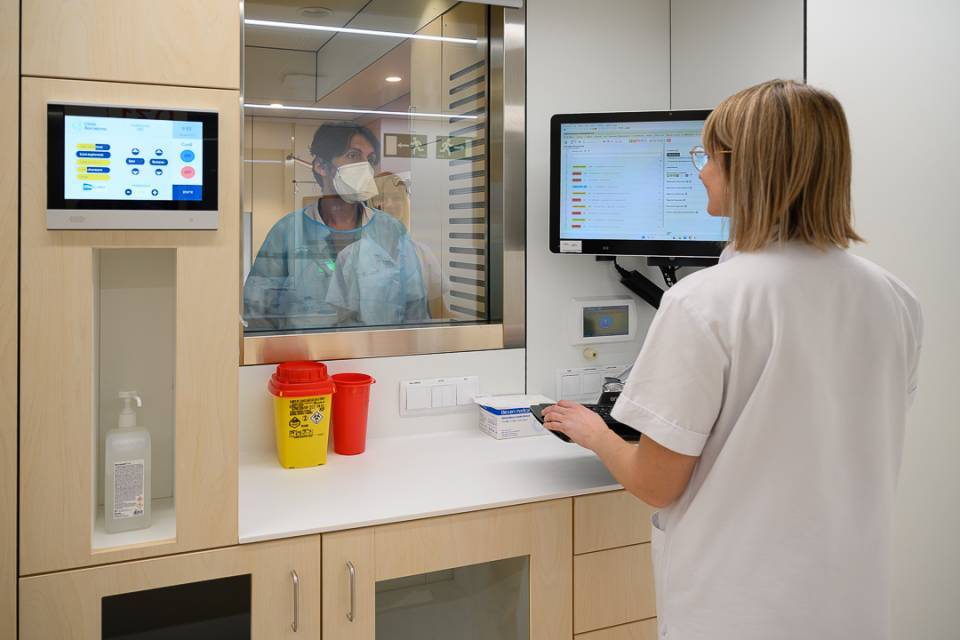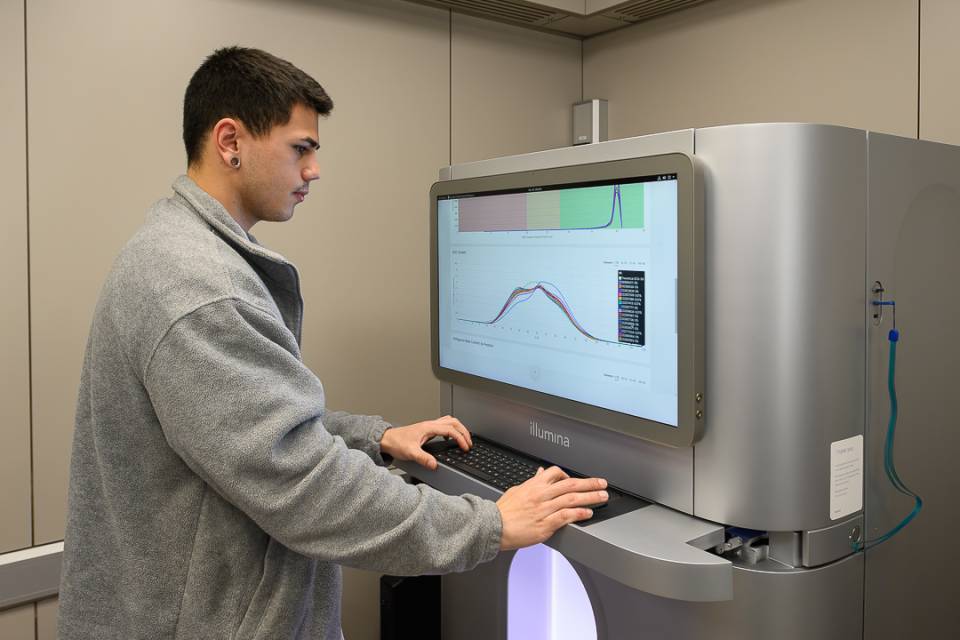The new Assisted Human Reproduction laboratory at the Hospital Clínic Barcelona is now up and running. It was inaugurated by the Catalan Minister of Health, Olga Pané, who was accompanied by Dr. Josep Maria Campistol, director general of the Hospital, Dr. Eduard Gratacós, director of the Hospital Clínic Gynaecology, Obstetrics and Neonatology Institute, Dr. Berta Díaz, head of the Gynaecology Service, and Dr. Dolors Manau, head of the Assisted Human Reproduction Section. The laboratory is currently carrying out 670 IVF procedures and 56 preimplantation genetic tests, as well as frozen embryo transfer cycles and artificial inseminations, which in 2023 totalled 490 and 110 respectively.
The new facilities offer a more comfortable and intimate setting for patients, placing them at the centre of the process and improving the care experience. It will also allow for the development of special programmes such as Fertility Preservation Programme or other more recent ones such as the Gamete Donation Programme and Transgender Care.
The new laboratory includes state-of-the-art equipment, designed to optimize the results of the treatment and reduce the need to repeat cycles, which reduces the emotional stress.
The new workstations integrated with inverted microscopy and semi-automated micromanipulators, as well as an increase in the number of incubators with time-lapse technology, will improve precision in the manipulation of gametes and the monitoring of embryonic development in the early stages, which are essential in order to guarantee the best possible results. In addition, a new biosurveillance system and environmental control programme have been implemented.
These innovations are accompanied by a total redesign of the facilities, separating the critical areas to optimize the work of the staff and guarantee maximum quality and safety. Moreover, the enlargement of the cryopreservation areas and the improvement of the workflows allow for a strict control of the processes, as well as better ergonomics for the professionals who work there.
One of the key aspects of this renovation is patient intimacy and comfort, with spaces specially designed for them, such as more welcoming waiting areas and embryo transfer rooms that guarantee privacy and pleasant surroundings. Additionally, a space has been set up specifically for patient communication and information, facilitating personal support throughout the entire process.
Dr. Dolors Manau, head of the Assisted Human Reproduction Section, stressed that "these technological and structural improvements will not only increase the efficiency of the treatments, but also allow for more personalized and humane care, in a setting designed to offer the best possible conditions for both patients and professionals”. Moreover, Dr. Campistol assured that, “we must highlight the increasing importance of these units for our public health system and for thousands of women. We have built this new unit with patients in mind, trying to provide the best service with the best technology possible”. He also took the opportunity to thank everyone who made it possible.
The Minister of Health, Olga Pané Mena, highlighted the “great traceability” of the new laboratory. In this respect, she remarked that, “the safety of the entire process is commendable, remarkable”. Olga Pané also congratulated the Clínic for the new facilities and encouraged the hospital to continue with initiatives of this nature. The Minister also pointed out that we have a reproductive trend in which women are deciding to become pregnant later in life, and many couples are starting the reproductive process at the age of 35 and over. And she added that it should be borne in mind that above the age of 38, “reproductive capacity decreases progressively".
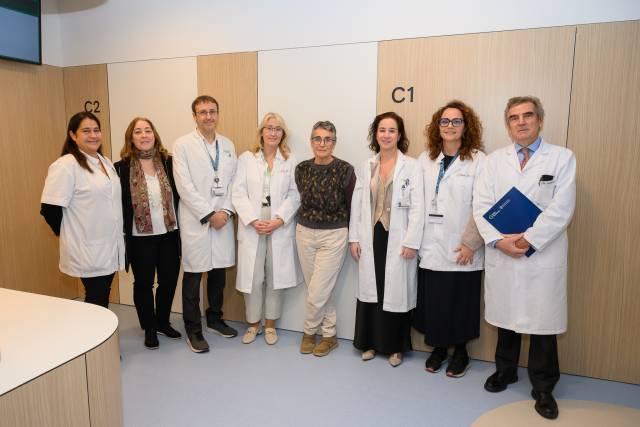
According to the latest report by the World Health Organization, infertility affects 1 in 6 people globally at some point in their lives. In our society, around 20% of couples of reproductive age have fertility problems. It is a multifactor phenomenon, involving socioeconomic, cultural and educational aspects, with delayed childbearing desires the main cause (a woman's fertility declines with age, particularly above the age of 35 and significantly beyond 38). Spain is the country with one of the lowest fertility rates in the EU (followed only by Malta) with 1.1 births per woman. This is a general trend in other countries, but more pronounced in Spain.
The Hospital Clínic’s commitment to reproductive health is in line with the highest international standards and ensures that advances in assisted reproduction techniques remain within everyone's reach. This new laboratory is a step forward in reproductive health, committed to research, innovation and patient welfare, and positions the Hospital Clínic as a benchmark in this field.

